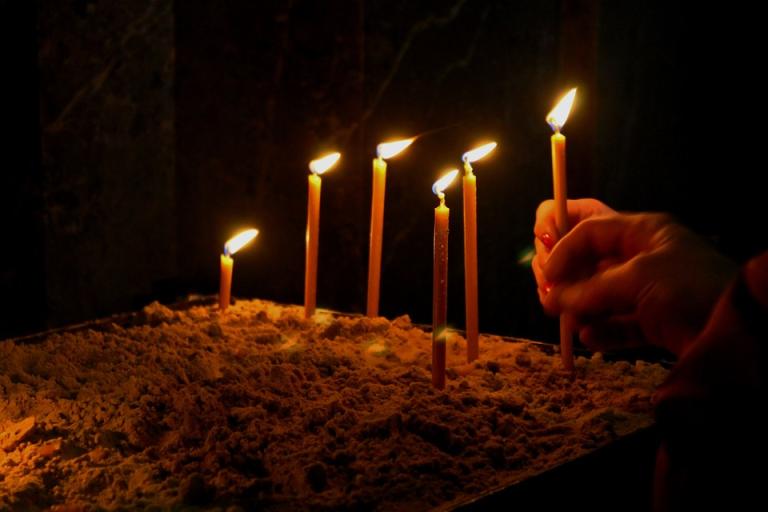Adapted from Grateful to the Dead.
We wonder today why we are spiritually anemic. This post from the monasticism chapter of my forthcoming Medieval Wisdom: An Exploration with C S Lewis moves on from the first of the “principles of mastery”–passion–to the third–discipline.
Holiness is not optional, and it requires effort
All this talk of passion may make us think that what is required it the single big, heroic action: casting ourselves into harm’s way for the sake of our loved one. But wise teachers of the spiritual life have reminded us of something we have sometimes forgotten: our lives as Christians are not all about single crisis experiences—single events that change our lives. The imagery of sawdust-trail conversions and emotional “altar calls” may sometimes lead us to think in that way, seeking a sudden, emotional experience as the solution to all our ills—but it just ain’t so.
John Wesley, to take just one example, reminded us that those powerful moments of repentance and coming to faith are just the “porch” or the “door” into the Christian life. The substance of the Christian life, which lasts as long as we live, is holiness. Wesley had a favorite phrase to explain holiness. He said it is “having the mind of Christ and walking as he walked.” Achieving that steady character in ourselves requires, in the motto Eugene Peterson borrowed from Friedrich Nietzsche, “a long obedience in the same direction.” That is to say, the Christian life is an askesis – an ascetic life. The word, again, means training, discipline. There is a “longitude” to the concept. It is not a single event.
The late Dallas Willard warned that many modern Christians are not only saved by grace, but we are paralyzed by it. We have drifted into a misunderstanding of Reformation teaching that has tagged all moral effort as works-righteousness. By these lights, grace is only for forgiveness from guilt; it has nothing to do with spiritual growth. Says Willard, “all you have to do is open the pages of the New Testament and you see that this is far, far from the truth.”[1]
We need to rediscover a grace-enabled discipline that endures over time—a way to work out our own salvation in fear and trembling, for it is God who works in us both to will and to do of his good pleasure (Phil. 2:12-13). The monastic teachers were no pull-yourself-up-by-the-bootstraps Pelagians. They “saw the whole process of man’s perfectibility within the economy of divine grace.”[2] We must not be paralyzed by grace. We receive salvation through grace, but as Dietrich Bonhoeffer insisted, it is not a “cheap grace.”
This is why monasticism is worth our attention. We may not set up medieval monasteries on our 21st-century landscape. But we certainly can probe how virtues and vices are coloring our daily interactions in the communities to which we already belong – at work, at home – just as Benedict and his monks did. What kinds of waters are flowing out of the fountain of our character to our co-workers, our customers, our boss, our spouse, our children? Sweet, nourishing ones? Or bitter ones? And where they are bitter, how can we sweeten them?
If it takes ten thousand hours to learn mastery, and if that rule might also apply to mastery of Christian discipleship, then we need to be aware that we are always doing more at work and at home than just creating products and services or running households. We are at the same time being re-created, ourselves, after the image of God. And we must join with God in that process, and that process is going to take much time and much self-conscious effort, as well as a lot of grace.
There are much worse guides to this particular kind of work than the medieval monastics. Monasticism was set up to provide all three essential components of mastery: We have seen (in the “affective devotion chapter”) how it fostered a passion for Christ. In its constant reading, preparation of manuscripts, learning, lectio divina, it was also soaking itself in the tradition – in particular, the moral sense of scripture.[3] And the monks’ life in community afforded ample opportunities to practice the virtues (humility and obedience being two of the most important in Benedict’s Rule), doing the hard work required to gain spiritual and moral mastery. The monastics understood the need for passion, tradition, and discipline. And they trained themselves in all three in a strong communal setting, guided by the development of the virtues through the absorption of the moral sense of scripture, repeated again and again in community.
(Read more here.)
[1] Interview with author
[2] Christopher Brooke, The Age of the Cloister: The Story of Monastic Life in the Middle Ages (Mahwah, NJ: Paulist/HiddenSpring, 2003), 43.
[3] Patrick Henry Reardon, “Scripture Saturation: To achieve holiness, believed the early monks, you must soak in the moral sense of the Word,” Christian History #80: The First Bible Teachers.













